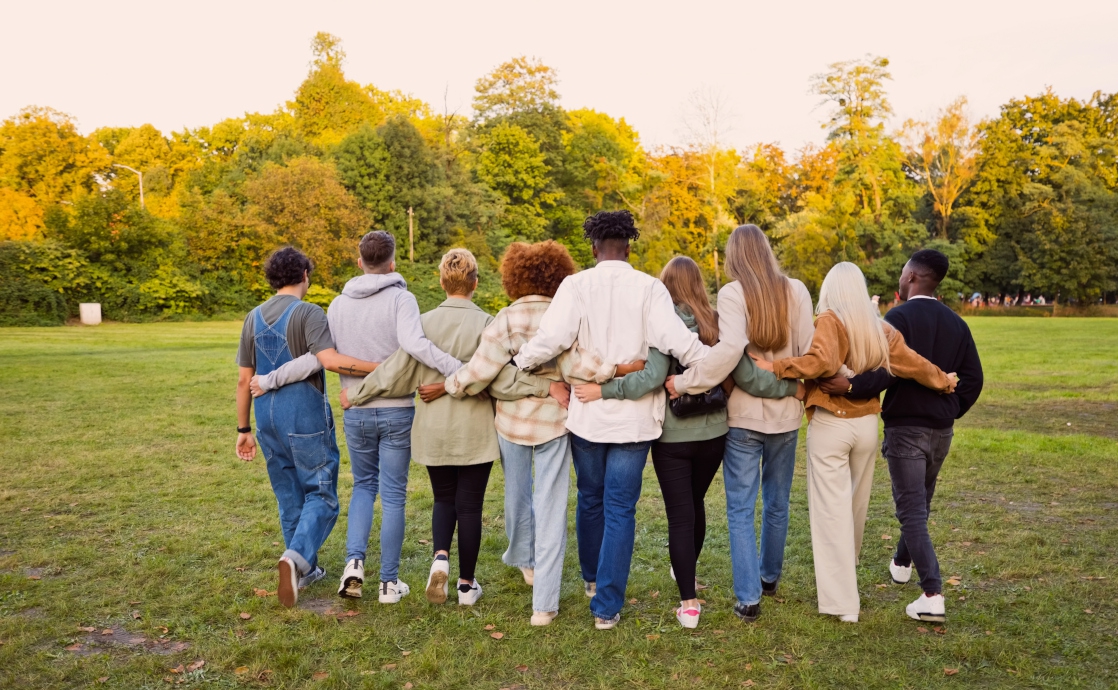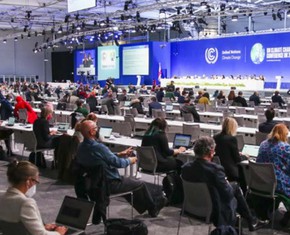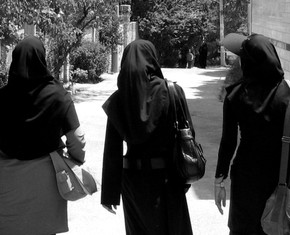The views expressed in our content reflect individual perspectives and do not represent the authoritative views of the Baha'i Faith.
The principal teaching of the Baha’i Faith is the oneness of humanity. Baha’u’llah wrote, “The earth is but one country and mankind its citizens” over 100 years ago.
By now, we can all see that humanity is essentially interdependent; the oneness of humanity has become a spiritual truth also confirmed by all the sciences of our era. That’s the fundamental purpose of the Baha’i Faith—to “promote the unity of the human race, and to foster the spirit of love and fellowship amongst men.” – Baha’u’llah, Gleanings from the Writings of Baha’u’llah, p. 215.
However, in the United States, like many other countries that rely upon a partisan system of governance, people are accustomed to taking sides. In an extremely heated political climate, the idea of fostering the spirit of love and fellowship with someone across the political divide may seem disingenuous at best, and life-threatening at worst. Our deepest fears and longings related to economics, race equity, immigration, and justice have all tied themselves into the values of our various political parties. Our sense of social progress and justice rests with our hopes for victory over the “other side.”
But if we really want to promote the oneness of humanity, why do we accept any partisan system of social organization that necessarily divides us into camps and pits us against each other? How can we expect to arrive at a state of unity by using a process that inherently creates and fosters disunity?
As a member of the Baha’i Faith and an American, I vote—but I do my best not to identify with any political party, and I avoid engaging in political activity. This doesn’t mean that I don’t have a sense of justice or a vision for real social transformation. I do. I just think that partisanship is fundamentally inimical to the principle of humanity’s oneness, and therefore it cannot logically move us forward to a place where the principle of oneness forms the basis of governance.

The Limits of Partisan Politics
Political polls continually show that Americans are bitterly divided along party lines, but this shouldn’t be surprising to anyone. If anything, it should confirm that the Western liberal democratic tradition of multiparty competition is working as intended.
Our system is built around enormous and deeply questionable assumptions about human reality: primarily that humans are selfish and competitive by nature, and that it is in our own best interest to be antagonistic towards the needs, values, and interests of our political rivals. Partisan politics demands that we always have “winners” and “losers.”
In my country, across all party lines, Americans are cynical towards government and mistrustful of corporate, financial, and political corruption that serves the interests of only a few powerful people or groups. But, to many, no other way of social interaction seems possible. We are literally caught in a frantic cycle of adversarial political backlash, and social media only seems to fuel our anger, fear, and frustration.
Within this narrative, serious social change is framed in terms of rallying against the un-favored party or politician, and then electing the right party or politician who can transform society into what we want it to be. But regardless of whatever party or politician is in power, the real root of the problem is that we are trapped in a divisive “us versus them” framework of competition, with all of its inevitable corruption, which allows for certain voices and interests to be privileged over others, and which paralyzes ordinary citizens from becoming agents of change in their own communities.
The partisan political system itself, with all of its narrow, built-in assumptions about human reality, forms one of the biggest obstacles to realizing the truly united and freely-functioning countries we would all like to see.
So if we want real social transformation, honest change and justice for all, we shouldn’t be looking for the perfect new candidate. We should search for a whole new way of relating to each other, and a bold new vision of society to actively work towards.
Baha’is believe that the only way to really break free of the profound social disunity in our societies—whether politically, racially, religiously, or otherwise—is to build true, authentic human solidarity, in a systematic manner, among all people. If we really want to see positive social change, we have to learn to build unity:
The welfare of any segment of humanity is inextricably bound up with the welfare of the whole. Humanity’s collective life suffers when any one group thinks of its own well-being in isolation from that of its neighbours or pursues economic gain without regard for how the natural environment, which provides sustenance for all, is affected… The world is in desperate need of a shared ethic, a sure framework for addressing the crises that gather like storm clouds. – The Universal House of Justice, March 1, 2017.
Love and unity are the needs of the body politic today. Without these there can be no progress or prosperity attained. – Abdu’l-Baha, The Promulgation of Universal Peace, p. 171.
















Comments
Sign in or create an account
Continue with Googleor